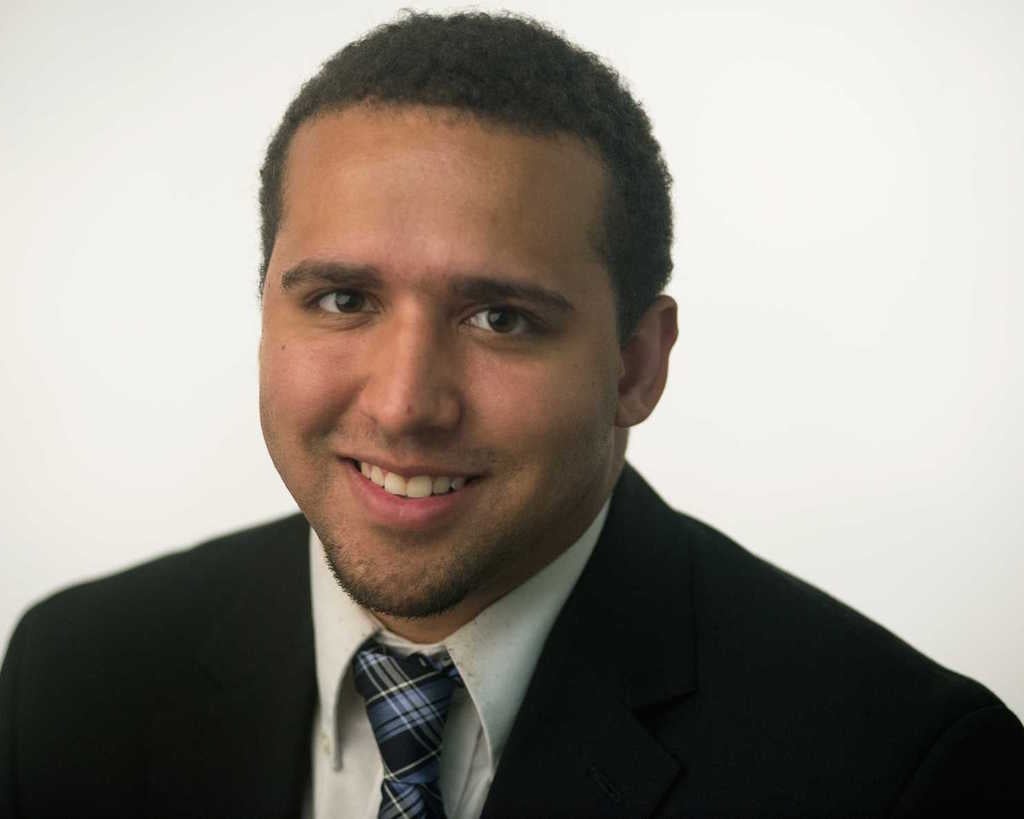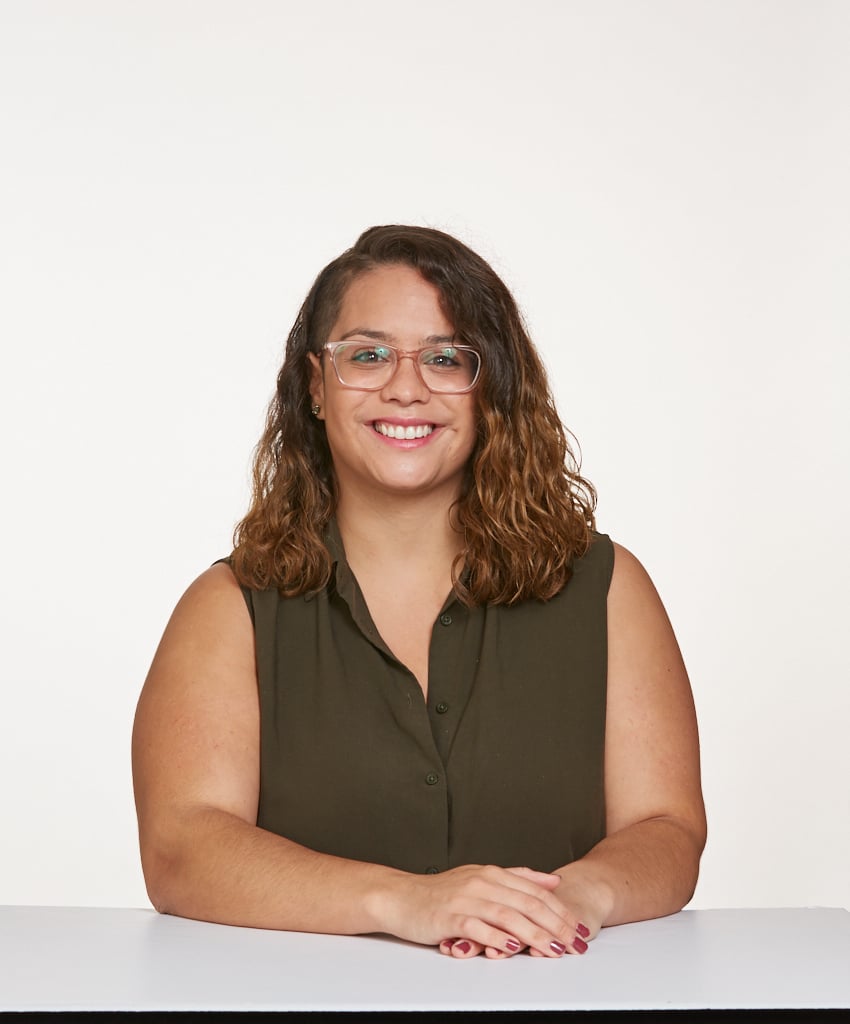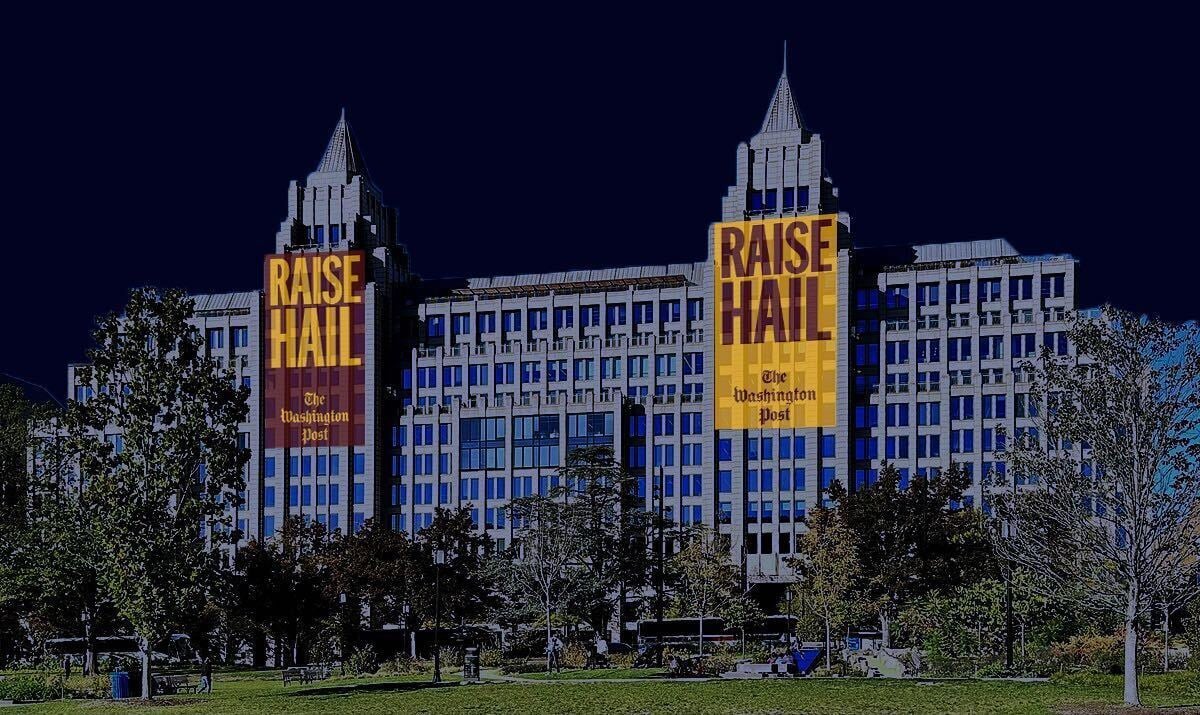Last week, 27-year-old Pulitzer Prize-winning Washington Post reporter Wesley Lowery signed over the rights to AMC to develop a fictionalized TV series based on his bestselling “They Can’t Kill Us All:” Ferguson, Baltimore, and a New Era in America’s Racial Justice Movement. The book was a cumulation of over a year of reporting on protests in response to fatal police shootings of young African-American men and women. Written in first person, Lowery shares his experiences interviewing the families of those lost and exploring the social justice movements their losses spurred. Pam Abdy is producing and LaToya Morgan, who has previous activism experience, will be writer and executive producer. Lowery chatted with Washingtonian about his cautiously optimistic hopes for his first TV project.
Your book is nonfiction. What will be the premise of this fictional show?
It’s a blank canvas right now. What we know is that this is going to be the story of young black activists, thrust into activism because of police violence. Not necessarily characters directly based on someone you might know, however, those folks and their experiences, both as chronicled in the book as well as in conversations we’re gonna have with them specifically for this project, will be reflected. How do we tell this story? There’s been a rise in a kind of a new generation of black activism and its marriage with old black activism [and] there’s been a focus on these issues in a mainstream way that perhaps hadn’t existed recently. If you have an incident, you have a death, a shooting, you have a viral video, I’m interested in deciphering how that one incident can be perceived by any number of people in different spaces. I would like to see complex white people in this series because I think that is where you can create some accessibility. When people see themselves reflected on the screens, even when people see themselves reflected on the screens doing things they would not agree with—you see and you’re like “Oh.” I think there’s some space where having every character be complex can help with that accessibility. So far, the plan is to create our own world. But, I would expect the themes and the lessons and the experiences voiced in the work I’ve done previously to exist in this space too. We’ll see what happens. A lot of this, LaToya’s driving the car here. This is gonna be her vision and I’m just along for the ride.
How do you build that trust?
It’s difficult. If I trust the person, if I trust the artist, I’m willing to give this to them. I want to see what she can do and create with this. I’ve created my work on this. I’ve written about this for the Post, I’ve written this book. This is a relatively closed chapter in terms of the specifics of what is in the book. I obviously still cover these issues and topics and ideas, but if the work I did can be inspiring for someone else in the medium that they work in, especially someone that I trust, someone who has got proven talent and proven expertise, then I’m kind of willing to say that. In some ways there’s a safety in some of that distance. This is not a Wesley Lowery project. This is LaToya Morgan’s TV show. As someone who is naturally curious, I’m really excited to learn more about this process and consult and contribute. I have a vested interest in a television show about what I write about being good. If I think these issues matter, it’s important that these stories are being told, I want to empower as many storytellers to be telling them as possible, right? In a world in which a series like this is going to exist or potentially going to exist, it’s in my best interest to have some level of involvement one way or the other. That’s kind of how I see it. There’s a little comfort in the one step of removal. I’m sure there will be moments in the story where like, “Oh, I would’ve done that a little differently,” but I think, especially in television, that’s an important part of the medium. I don’t want to watch a show that I agree with every part of. One of the beauties of Insecure is that I hate all of the characters all the time. Why did you do this?! You watch people make bad decisions—
Like Lawrence.
But it’s also relatable for that. I watch Lawrence make all the bad decisions I’ve ever made in my dating life and I’m like, “I get this. Why are people being so mean to him on the internet?” I understand what he was going through.
What are you most concerned about in the show’s execution?
These topics are eminently serious. It’s real. We’re writing about people’s lives and their deaths. Sometimes TV can be a very difficult medium for conveying nuance and depth. That, in a broad sense, would be the top line thing I would be worried about. As someone who’s consumed a lot of media and fictionalized media about these topics, I know that there are certainly obvious pitfalls and perilous terrain as it relates to this. A place like AMC makes me less nervous about something like that, a place that has a reputation for quality, prestige TV on complicated nuanced things. We’ve seen a good amount of media created around the idea of Black Lives Matter. There’s an enduring conversation happening right now and people wanna have that conversation. I think also what excites me about television right now, while not broadly enough true, there certainly seems to be some interest and hopefully some commitment in having black storytellers tell black stories. Whether that’s Queen Sugar or Atlanta or Insecure, there’s this space where you have black creators just creating things. I also think there is a moment right now where there’s an awareness that black stories are universal stories and the black American experience is, in fact, a central tenet of the American experience.
Are you going to be a character?
I don’t think that’s something that was foreclosed upon in part because the book’s written in first person. Even if that might be the case, there’s a world where I could be a character, there’s a world where there is a journalist character. It’s all on the drawing board right now. We’re in a research phase right now, doing interviews with activists and families, working through those processes. I want to get out of [LaToya’s] way and see where it’s tripping switches in her head and how she’s seeing and how she’s thinking about it. The world has plenty of examples of my interpretations of protests. [With the book,] I thought it was important to, as a young black reporter who is in these spaces and telling these stories—even if only for the benefit of fellow journalists—to speak honestly about what those experiences are like so that one, it’s just written down, but two, so that other colleagues, both of color and not, can understand what that is like. I don’t know that in a television space, that will be the same desired effect. That was, in part, the point of this book, married with a desire to tell the stories of these young people. The television show, I think, is very likely to be more focused on the stories of the young people, but I’m sure, unquestionably, there will be some component of the media’s portrayal, both of activists and of victims. The media certainly will be a character.
Have you thought about who would play you?
I mean, of course. [Laughs.] I’m very bad at fake humility. 100 percent. After the first conversation with Pam, I was like, “I wonder who would play me if there was…” So I think I’ve settled on the high-in-the-sky answer being—this would never actually happen because he’s way too awesome and famous—but it would definitely be Michael B. Jordan. Have anyone to play you tomorrow—it’s like, put some glasses on Michael B. Jordan, give him a reporter’s notebook and a bad haircut. He’d have to get back out of shape after Black Panther, just lock him in a trailer and feed him for a few months. We’ll see what happens. I think I’m gonna lean toward not having me be a character, which I actually think is probably my preference. I’m certainly not the story.
How are you measuring success this early on?
To be honest, I personally don’t care if anyone ever watches the show. The show that does not exist. I would assume most people on my team would yell at me for even saying that. However, for me what’s most important is that at the end of a creative process, whatever that means, we look back at a piece—a pilot script if that’s all it is—and we say, “This told these stories in a way that advanced our understanding, that was respectful, that was nuanced, and that was revelatory.” [We] put a new lens on something that we already know to be true.
This interview has been edited and condensed.



















